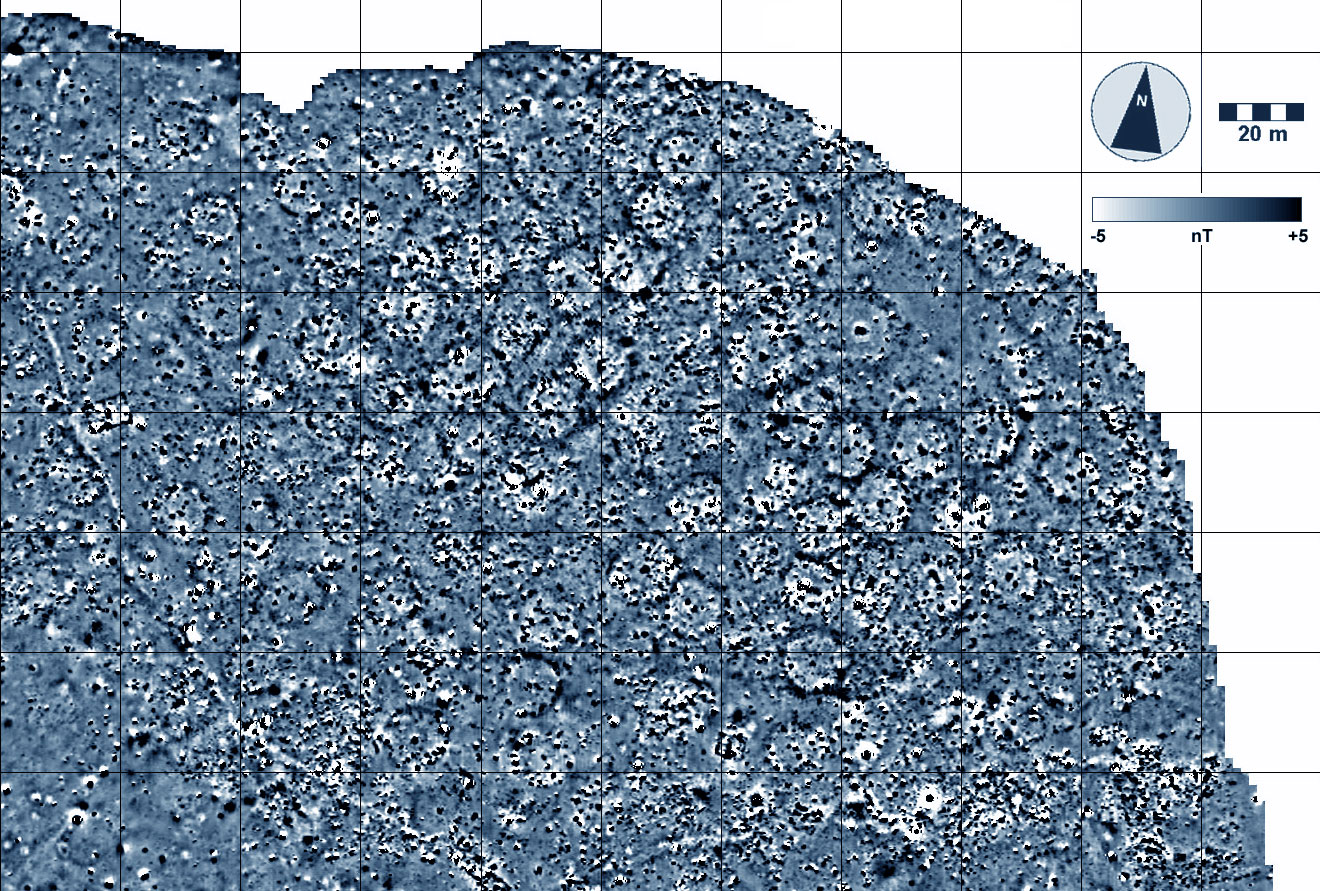Kvamme and Wiewel Awarded Park Service Preservation Grant

Magnetic gradiometry data recorded at the surface of the Mandan-Arikara village (ca 1822-1861) at the Fort Clark State Historic Site in 2011 by a University of Arkansas team lead by Kvamme and Wiewel. The larger circles point to the loci of former dwellings (earthlodges), the white line to the west and south corresponds with a defensive fortification ditch, and the many small anomalies (black "dots") indicate the loci of hearths, storage pits, and iron artifacts.
Kenneth L. Kvamme, professor, and Adam S. Wiewel, doctoral student, both of the department of anthropology in the J. William Fulbright College of Arts and Sciences, have been awarded a grant from the National Center for Preservation Technology and Training of the U.S. National Park Service.
Titled "Comprehensive Understanding of Archaeological Magnetism and Instrumentation," the grant investigates field methodologies and instrumentation to improve understanding of magnetic characteristics of the archaeological record.
The grant will do four things:
- Examine methodologies for distinguishing between thermoremanent anomalies (associated with hearths) versus induced anomalies (associated with cache pits and other features).
- Generate magnetic maps of excavated profiles of pits, hearths, house floors and ditches to enhance understanding of anomaly formation as recorded at the surface.
- Compare the performance of single coil and dual coil instruments for recording magnetic susceptibility.
- Investigate rarely examined magnetic characteristics of ephemeral hunter-gatherer camps.
This research takes place at the Fort Clark State Historic Site and the Double Ditch State Historic Site, in North Dakota.
Topics
Contacts
Kenneth L. Kvamme, Professor
Department of Anthropology
575-4130,
kkvamme@uark.edu
Headlines
U of A's Inspirational Chorale Makes Its Carnegie Hall Debut
The U of A's Inspirational Chorale took center stage at Carnegie Hall in March, performing under the direction of professor Jeffrey Murdock to a packed audience at the iconic Stern Auditorium.
The State of Economics With Mervin Jebaraj Set for June 5
U of A economist Mervin Jebaraj will analyze state's economic trends and regional issues in an upcoming talk. Preregistration is required by May 31.
Faculty Demonstrate Dedication to Student Success Through Teaching Credentials
Eight faculty members from across the U of A have earned the prestigious Association of College and University Educators certification in Effective College Teaching.
Artificial Intelligence, Machine Learning Boost Arkansas Animal Science Research
Aranyak Goswami, a bioinformatics specialist, will work with three different departments to boost the research arm of the U of A System Division of Agriculture.
College of Education and Health Professions Doctoral Student Picked for Grosvenor Fellowship
Jessica Culver, a doctoral student in the College of Education and Health Professions Adult and Lifelong Learning program, has been selected as a member of the 2024 Grosvenor Teacher Fellowship.




